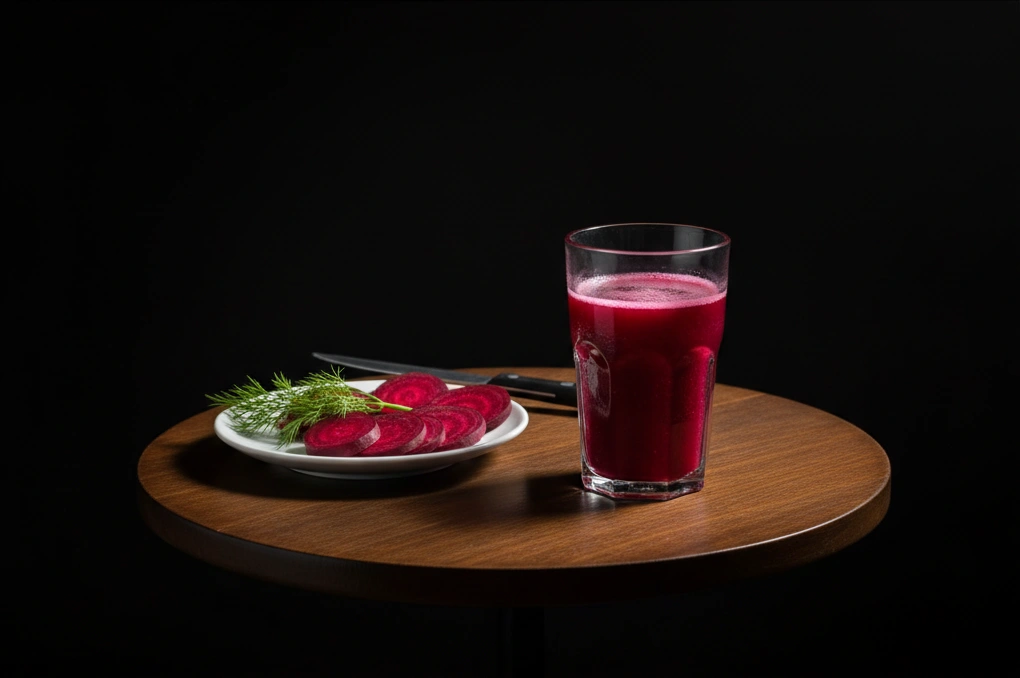Beetroot Boosts Recovery - Separating Spin from Science

Ever guzzle a beetroot shot and swear you recovered faster? Turns out, there's more than hype behind that earthy taste. Let's unpack what the research says about beetroot's role in bouncing back from tough workouts.
Why Recovery Nutrition Matters
If you're chasing performance, recovery isn't just downtime - it's when your muscles adapt and grow stronger. Hard training spurs micro-damage in muscle fibers and oxidative stress. The right nutrition can speed repair, reduce soreness and keep you training consistently. Plant-based interventions, like beetroot juice, have become a popular tactic among athletes seeking a natural edge.
The Claim: Beetroot Reduces Soreness and Accelerates Recovery
Beetroot is rich in nitrates, betalains and other antioxidants. Enthusiasts say it can ramp up blood flow and quell inflammation after exercise. But what does the science actually show? A 2021 review looked at nine human studies examining beetroot supplementation on recovery after strenuous exercise. Let's break down the results.
What the Evidence Says
- Functional recovery: Most studies reported improvements in functional variables like countermovement jump height, time-to-exhaustion, or torque recovery. These metrics suggest athletes performed better when beetroot was consumed consistently, though the magnitude varied by study (PMC9214898).
- Muscle soreness: Several trials found participants reported less delayed onset muscle soreness (DOMS) after beetroot supplementation. Subjective pain ratings dropped sooner than in control groups (PMC9214898).
- Biomarkers of damage: Here's the twist - markers such as creatine kinase (CK), inflammatory cytokines and oxidative stress did not change consistently. In some trials, CK was lower; in others, no difference emerged. The review concluded that beetroot's benefits may be more about how we feel and perform, rather than objective biochemical changes (PMC9214898).
Key Insight: Beetroot supplementation consistently improves how athletes feel and perform after exercise, even when blood markers of muscle damage don't change. This suggests the benefits may work through enhanced blood flow and antioxidant protection rather than preventing damage itself.
How Might It Work?
Researchers propose a few mechanisms:
- Nitrate-nitric oxide pathway: Dietary nitrates from beetroot convert to nitric oxide, a molecule that dilates blood vessels. Enhanced blood flow could help deliver oxygen and nutrients while removing metabolic waste.
- Betalain antioxidants: Beetroot's deep color comes from betalain pigments, which have potent antioxidant and anti-inflammatory properties. They may reduce oxidative stress generated during exercise.
- Synergy of compounds: Beetroot also contains polyphenols, vitamin C and other nutrients that work together.
Dosing and Timing
Studies vary widely in dose and form - some used concentrated beetroot shots (70-140 ml), others drank 500 ml of juice daily. Many protocols involved taking beetroot for several days before and after exercise. Acute ingestion on the workout day alone did not provide as much benefit.
Practical Dosing Guidelines
| Form | Dose | Timing |
|---|---|---|
| Concentrated shot | 70-140 ml | 2-3 days before through 2-3 days after exercise |
| Fresh juice | 500 ml | Daily, starting 2-3 days before event |
| Frequency | 1-2 servings daily | Spread doses to avoid digestive distress |
Caveats and Limitations
- Small sample sizes: Most trials involve fewer than 20 participants, limiting generalizability.
- Placebo effects: Perceived improvements in soreness could partly be expectation. Few studies used double-blind designs.
- Heterogeneous protocols: Doses, exercise models and participant fitness levels differ, making direct comparison tricky.
Should You Use It?
Beetroot appears to modestly improve functional recovery and reduce soreness. It isn't a magic cure - you still need protein, sleep and smart programming - but if you enjoy the taste and tolerate beetroot well, it's a low-risk addition.
Important Considerations
- If you have kidney stones or oxalate sensitivity, consult a healthcare professional before consuming large amounts
- Check with your sport's governing body to ensure supplements comply with regulations
- Start with smaller doses to assess tolerance and avoid gastrointestinal upset
- Combine with proven recovery strategies: adequate protein, quality sleep, and progressive training
Bottom Line: Beetroot supplementation shows consistent promise for reducing perceived soreness and improving functional performance after intense exercise. While it won't replace the fundamentals of recovery nutrition, it's a safe, natural option worth testing during your training.